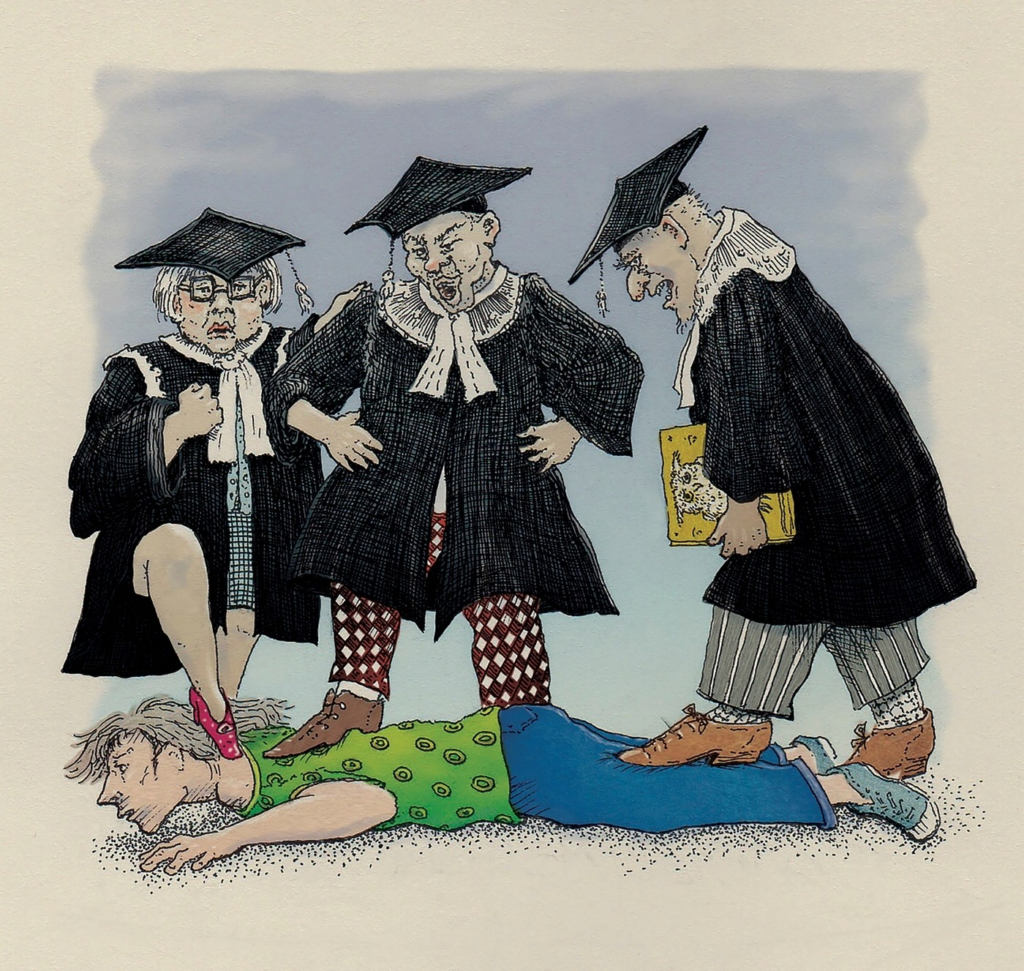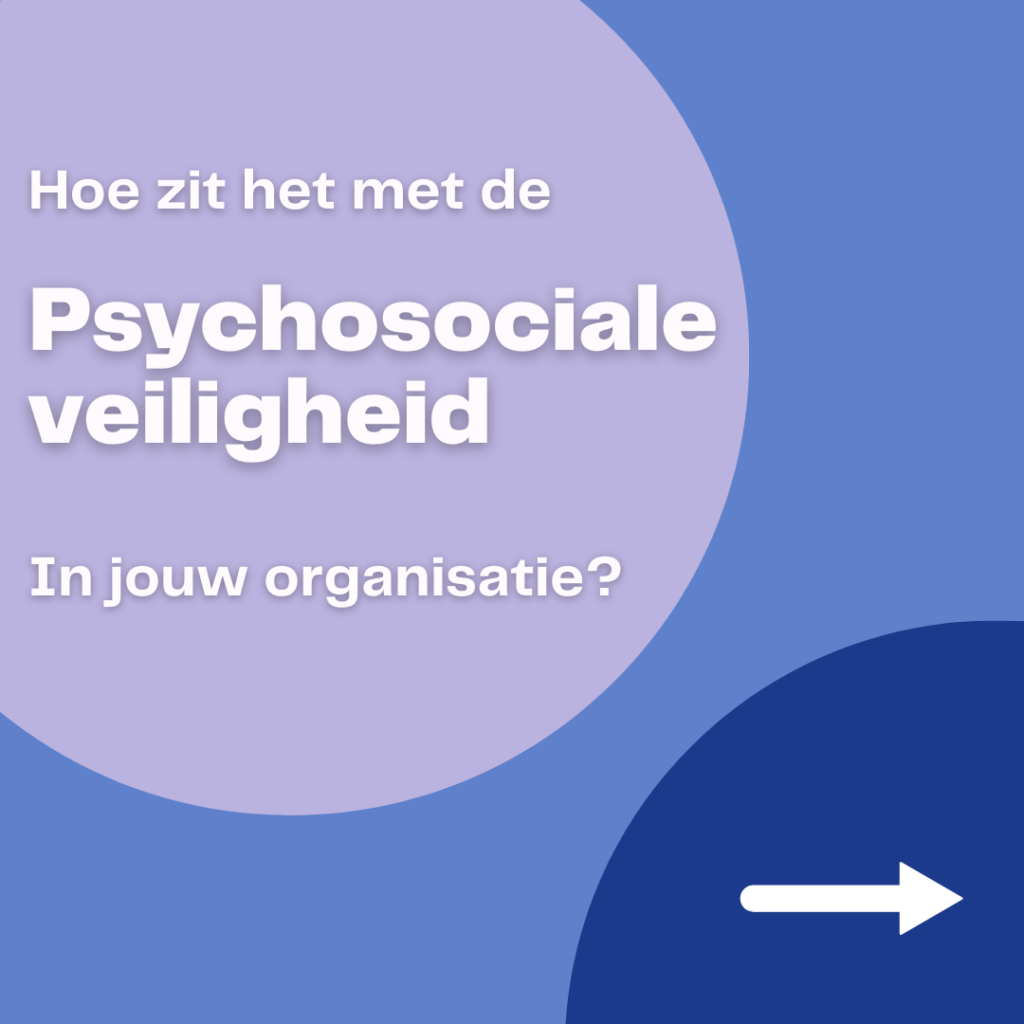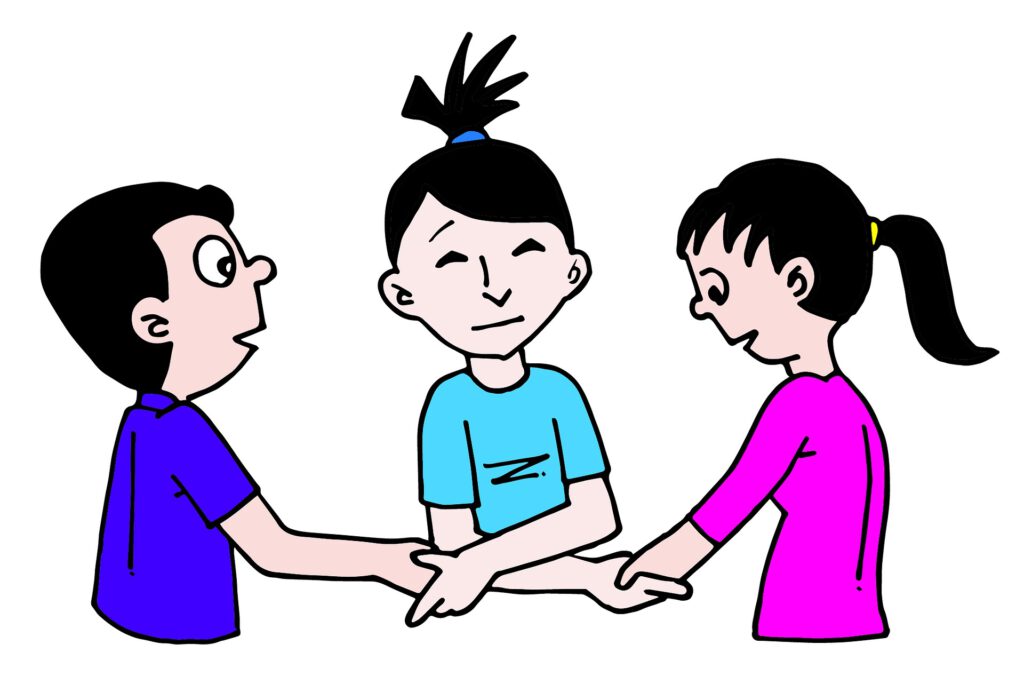Als mediator en vertrouwenspersoon is het lastig mijn ervaringen in detail te beschrijven in verband met de vertrouwelijkheid. Ik heb besloten om naast mijn kennis, ook mijn ervaringen te delen. De ervaringen zijn op waarheid gebaseerd. Ik heb vaak details veranderd, zodat ze niet herleidbaar zijn naar een individuele situatie.
Werkgever is ook verantwoordelijk op de kerstborrel of bedrijfsuitjes

Werkgevers zijn wettelijk verantwoordelijk voor de (sociale) veiligheid van medewerkers , dat is bij de meesten wel bekend. Ik kan me voorstellen dat niet iedereen zich realiseert dat zich dat ook uitstrekt tot de activiteiten die georganiseerd worden uit naam van het bedrijf, zoals de kerstborrel.
In een artikel in het NRC van december 2022 wordt daar toelichting op gegeven. Het artikel benadert wat mij betreft te kort door de bocht dat je als werkgever een onderzoek moet starten op het moment dat er een klacht is. Bij een goed werkend systeem waarbij een vertrouwenspersoon betrokken is, kan het nog verschillende kanten op. Het kan zijn dat het tot een onderzoek leidt, wellicht met het ontslag van de dader als resultaat. Maar, zoals in het artikel ook staat, vaak wordt het slachtoffer juist aangekeken op de klacht en leidt dat tot extra spanningen. Slachtoffers zijn vaak ook niet uit op het ontslag van de dader. Dan zijn andere oplossingen beter, waarbij de vertrouwenspersoon kan adviseren en het slachtoffer de regie kan houden.
Concreet over het voorkomen van grensoverschrijdend gedrag op de kerstborrel, geeft het artikel wel nuttige tips:
– Let op het alcoholgebruik.
– Hou als leidinggevende rekening met je voorbeeldrol en maak desnoods afspraken binnen directie of managementteam over wie nuchter blijft.
– Als er iets misgaat, handel snel. De Ruiter: „Wanneer er iets op de kerstborrel is gebeurd, weten daar vaak veel collega’s van. Als werkgever moet je zorgen dat je zo snel mogelijk optreedt, bijvoorbeeld door iemand in een taxi naar huis te zetten als er te veel is gedronken.”
– Pak eventuele klachten direct op: „Niets doen leidt alleen maar tot meer onrust.”
Mijn persoonlijke ervaring met intimidatie en machtsmisbruik
Uit recente onderzoeken blijkt dat intimidatie en machtsmisbruik aan universiteiten geen incidenten zijn, maar structurele gebreken van een inherent ongelijk systeem. Ooit maakte ik als AiO ook deel uit van de universitaire wereld en had persoonlijk te maken met intimidatie en machtsmisbruik. Triest om te lezen dat er sindsdien niets veranderd is.
Ik had een gesprek met de decaan, de voorzitter van de faculteit. Ik was al twee jaar op weg, mijn onderzoek liep lekker bij DAF, KLM en de NS. De bedrijven waren enthousiast over mijn werk en keken uit naar de resultaten van mijn onderzoek.
Alleen liep het niet lekker tussen mijn eerste promotor, de professor, en mij. Hij was denigrerend, zijn feedback was ronduit vernederend. Het gesprek met hem daarover aangaan maakte het alleen nog maar erger. Na lang twijfelen en met een knoop in mijn maag durfde ik dat aan te kaarten bij het faculteitsbestuur, want ik had er geen vertrouwen in dat ik een succesvol proefschrift kon afronden met die professor.
Intussen had ik aansluiting gevonden bij een onderzoeksgroep van de UvA. Plannen werden gemaakt om mijn onderzoek te ‘verhuizen’ naar de UvA. In het gesprek met de decaan gingen we eindelijk afspraken maken over mijn overplaatsing. Ik had er zin in!
De decaan en ik stellen ons aan elkaar voor, want we kennen elkaar niet. De man steekt direct van wal en zegt op strenge toon: ‘ik zal maar gelijk duidelijk zijn.’ Ik heb niets in de gaten, ben nog steeds opgetogen. ‘Jij hebt de afgelopen twee jaar niet gefunctioneerd, we gaan jouw onderzoek stoppen.’ Hè, hoor ik dat goed? Watteh… Dit is niet eerlijk… En DAF, KLM, NS? De plannen met de UvA?
‘Er zijn geen functioneringsgesprekken geweest, er staat niets op papier, maar vanaf nu gaan we een dossier opbouwen. En dat geeft vast genoeg reden om jou te ontslaan.’
Wat een klap. De tranen lopen over mijn wangen als ik terug ben op mijn kamer. Gelukkig is één van mijn collega’s een goede vriendin (en nu nog steeds), die mij opvangt. Genoeg voor vandaag, we fietsen samen naar huis.
Ik wist niet wat ik verder moest doen, bij wie ik te rade moest gaan. Ik wilde het gevecht aan, het was niet eerlijk, onrecht heb ik nooit goed kunnen verdragen! Ik had toen iemand als een vertrouwenspersoon kunnen gebruiken, zoals ik dat nu voor anderen ben. Na wat om me heen informeren was me al snel duidelijk: die machtsstrijd zou ik nooit kunnen winnen en zo wel, zou dat hoogstwaarschijnlijk ten koste gaan van mijn eigen mentale gezondheid, veel tijd en energie kosten. Ik koos voor mezelf en heb gelukkig daarna werk gehad waar ik weer vertrouwen in mezelf en anderen heb kunnen opbouwen.

In mei 2022 verscheen een artikel in de Groene over grensoverschrijdend gedrag in de wetenschap. Dat het gebrek aan sociale veiligheid op universiteiten niet alleen een drama is voor de betrokken individuen, zoals ik toen, maar voor de wetenschap als geheel staat ook in dat artikel: Nederland mist daarmee innovatie en inzichten, omdat mensen zich niet vrij voelen om te praten. Een hardnekkig systeem dat hoognodig dient te veranderen!
Hoe zit het met de psychosociale veiligheid in jouw organisatie?

De term ‘psychosciale veiligheid’ klinkt misschien wat abstract, maar bekijk maar eens hoe het zit aan de hand van deze stellingen:
– In onze organisatie durven we er iets van te zeggen als er een ongepaste opmerking gemaakt wordt.
– Als een collega aangeeft dat het niet goed met hem gaat, wordt dat signaal serieus genomen in onze organisatie.
– In onze organisatie is er ruimte voor kritische feedback richting leidinggevenden, management en directie.
– Als er in onze organisatie iemand gepest, gediscrimineerd of (seksueel) geïntimideerd wordt, grijpen collega’s in.
Twijfel je of de stellingen volledig waar zijn voor jouw organisatie? Dan is er waarschijnlijk wel iets te doen als het gaat over sociale en psychologische veiligheid. Hebben jullie daarnaast geen gedragscode, omgangsregels of protocollen bij incidenten bij grensoverschrijdend of niet-integer gedrag? Dan hebben jullie vast ook geen vertrouwenspersoon, intern of extern, of die rol niet professioneel belegd. Een gesprek met een extern vertrouwenspersoon kan een prima eerste stap zijn om de psychosociale veiligheid in jullie organisatie te vergroten.
Vertrouwenspersoon als professional
‘Frans is onze vertrouwenspersoon, want iedereen kwam toch altijd al zijn hart bij hem luchten, dus dat hebben we maar geformaliseerd. Hij hoeft verder geen opleiding, hij weet heel goed hoe hij moet luisteren.’
‘Onze Financieel Directeur is de vertrouwenspersoon in onze organisatie, heel gemakkelijk, hebben we direct input binnen het management over wangedag.’
‘Onze HR-medewerker is onze vertrouwenspersoon, die doet toch al onze ‘mensen-dingen’, dus de rol van vertrouwenspersoon past er wel bij.’
‘Bij ons is geen vertrouwenspersoon nodig. Wij zijn zo’n kleine organisatie, de mensen kunnen altijd bij iedereen terecht met hun verhalen.’
Sinds ik vertrouwenspersoon ben, kom ik nogal wat ‘vertrouwenspersonen’ tegen in organisaties. Tussen aanhalingstekens, omdat de mensen uit bovenstaande voorbeelden de rol van vertrouwenspersoon helemaal niet of niet helemaal goed kunnen invullen. Vaak is het beeld dat een vertrouwenspersoon niet meer is dan een luisterend oor voor mensen in de organisatie die eens met iemand willen praten. Maar een professionele Vertrouwenspersoon is veel meer. Ik draag actief bij aan meer sociale veiligheid op de werkvloer door het management te adviseren, voorlichting te geven aan medewerkers, en als ik luisterend oor ben, geef ik advies over oplossingsrichtingen en blijf ik de zaak volgen tot het opgelost is.
De escalatieladder van Glasl in de praktijk



Gedurende de medationbijeenkomst verhardde de sfeer. Ik zag de kaken van de ene directeur verstrakken, de andere directeur sloeg zijn armen over elkaar en draaide zich af. De werknemer kreeg steeds meer vlekken in zijn nek en zijn vrouw zat onrustig te schuiven op haar stoel. Alle redelijkheid leek weg. Ik besloot een time-out in te lassen, of een caucus, zoals dat in vaktermen heet, om te peilen wat er nou eigenlijk aan de hand was. Een caucus betekent dat de mediator met beide partijen apart spreekt en daarna weer samen.

De escalatieladder van Glasl geeft weer hoe een conflict kan escaleren en hoe het gedrag van de betrokkenen er dan uitziet. Het model is van toepassing op alle mogelijke conflicten, van die aan de keukentafel tot internationale conflicten. De laagste (of hoogste, meest ge-escaleerde) trede is die van ‘samen de afgrond in’. De waarheid doet er niet meer toe, redelijkheid ook niet en alles is toegestaan om de ander uit te schakelen. In deze mediation was het tijdens de intake al duidelijk dat de eerste twee treden van de escallatieladder gepasseerd waren. Er was te veel beschadigd in de relatie dat ze er zelf samen uit zouden kunnen komen. Tijdens de intakegesprekken waren de beide directeuren open en oprecht over de pijn die ze voelden over de verslechterde relatie. Dat gaf mij vertrouwen dat mediaten mogelijk moest zijn. Toch bleek dat aan de kant van de directeuren de laagste trede bereikt was…

Tijdens de time-out, in het gesprek met de directeuren gooide één van de twee er meteen uit: ’Nooit zal ik ook maar iets toegeven richting deze man, al wordt het mijn faillissement!’ Hij ging er zelfs bij staan en maakte grote wegwerpgebaren. Vriendelijk en gebarend naar de stoel vroeg ik hem wat er gebeurd was sinds het intakegesprek. Ze bleken samen verder de ladder afgedaald en elkaar versterkt in de verharding in het conflict. Ze hadden besloten dat ze niet bereid waren te bewegen, ten koste van alles, zelfs ten koste van het voortbestaan van het bedrijf. Natuurlijk heb ik mijn verwondering geuit over de veranderde houding en een poging gedaan om in ieder geval met mij het gesprek aan te gaan, omdat het maar de vraag is wat een rechter ervan zou vinden. Het tij was echter niet te keren, de mannen wilden naar de rechter. En eigenlijk zaten ze vooral in de mediation, zodat ze het ‘vinkje’ hadden gezet en in ieder geval tegen de rechter konden zeggen dat ze het geprobeerd hadden. Er zat niets anders op, ik heb besloten de mediation te stoppen, omdat ik geen mogelijkheid zag die tot een goed einde te brengen.

Als een conflict zover geëscaleerd is, heeft mediaten niet veel zin, dan is er al teveel beschadigd en geen bereidheid meer om er uit te willen komen. Mogelijke ‘oplossingen’ voor het conflict zijn dan een rechter of arbiter in te schakelen of therapie… En therapie is misschien altijd wel nodig als een conflict zover geëscaleerd is.
Mediator is kleuterjuf…?

Ik dacht dat jij zo’n kleuterjuf zou zijn die zou zeggen ‘nou geef elkaar een hand en dan is het weer goed’. En ik had me voorgenomen dat ik hem geen hand zou geven, als jij dat zou vragen. Maar, nu wil ik hem eigenlijk wel graag een hand geven.
Dat is het einde van een mediation van een aantal jaar geleden. Twee collega’s hebben al heel lang ruzie. Of ruzie kun je het niet echt noemen, ze negeren elkaar, tijdens pauzes zitten ze met de rug naar elkaar toe, gesprekken vallen stil als de ander binnen komt en af en toe wordt er een sneer uitgedeeld. De directeur is er klaar mee. Na een mislukte poging om de collega’s zelf nader tot elkaar te brengen, heeft hij mijn hulp ingeroepen.
Al tijdens de intakegesprekken is mij duidelijk dat beiden veel aannames doen over de intenties van de ander. Daarnaast blijkt er nogal wat onuitgesproken oud zeer. Eén van de collega’s heeft bovendien al jaren een nogal gespannen privésituatie, zodat er op zijn werk nog wel eens onhandige opmerkingen uitfloepen, die grappig bedoeld zijn, maar niet door iedereen zo ervaren worden. Hij is bereid dat uit te leggen aan de ander tijdens de gezamenlijke bijeenkomst.
De mediation verloopt eerst gespannen, dan emotioneel en uiteindelijk is er een ontspannen lach zichtbaar bij beide mannen. Vrienden zullen het niet worden, maar de kou is uit de lucht en er is meer begrip voor elkaar. Ze zijn zich bewust geworden van hun eigen (onjuiste) aannames over de intenties van de ander. En uiteindelijk geven ze elkaar een hand, terwijl ik daar natuurlijk nooit om vraag!
Tip: als je jezelf betrapt op een gedachte over een slechte intentie van een ander, stel je zelf dan meteen de vraag: kan ik zeker weten dat dat de intentie is van de ander? Of is dat een aanname?
Voorstel voor vaststellingsovereenkomst

Tijdens het intakegesprek springen de tranen in zijn ogen als hij vertelt hoe beledigd hij is door zijn werkgever. Hij is al een enige tijd ziek, mede door het conflict op het werk. Zijn werkgever heeft hem een tijdje geleden een vaststellingsovereenkomst aangeboden. Daarom is hij ook zo beledigd. ‘Echt, al 25 jaar zet ik me in voor het bedrijf en dan krijg ik dit?’.
Ik zie het vaker. Er bestaat blijkbaar een overtuiging bij sommige werkgevers dat je in het nadeel bent als je zelf het eerste voorstel doet en daarom zo laag mogelijk moet insteken. Dat is misschien zo als je aan het onderhandelen bent over de prijs van een auto, maar het werkt anders met een voorstel voor een vaststellingsovereenkomst. Zo’n voorstel representeert voor een werknemer de erkenning en waardering voor zijn inzet, dat heeft een emotionele lading. Als dan het aanbod buiten proporties laag uitvalt, ontstaat of escaleert een conflict. Ik ben vaker pas in die fase ingezet als mediator. Ik ben ervan overtuigd dat het veel tijd, energie en uiteindelijk ook geld scheelt als het eerste voorstel meteen een redelijk voorstel is. Natuurlijk kun je er daarna nog samen over onderhandelen, maar daar kom je dan vaak wel uit, dan is er minder snel een mediator nodig.
